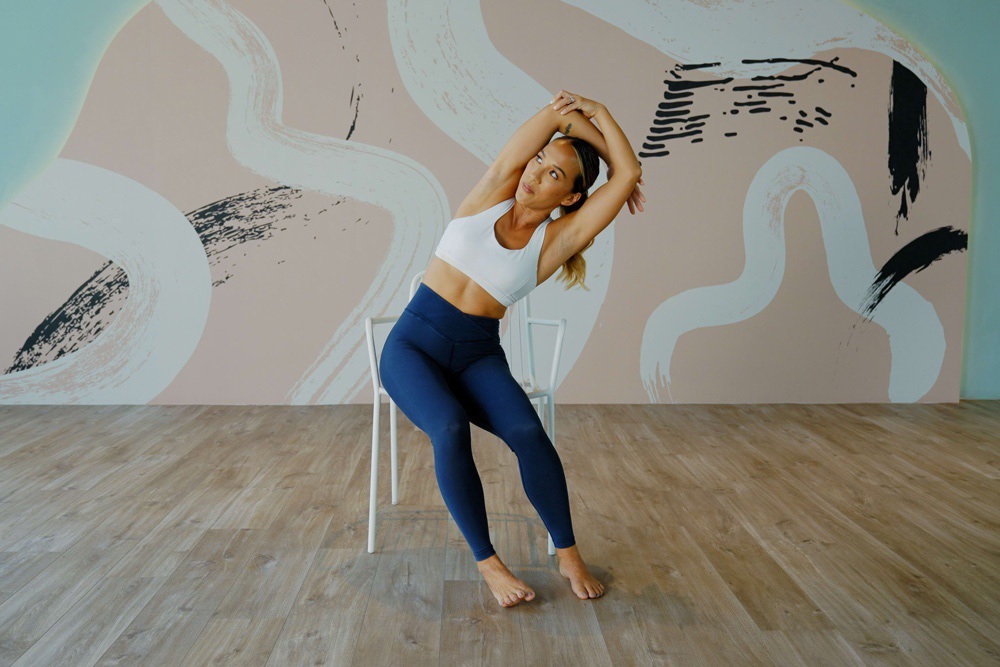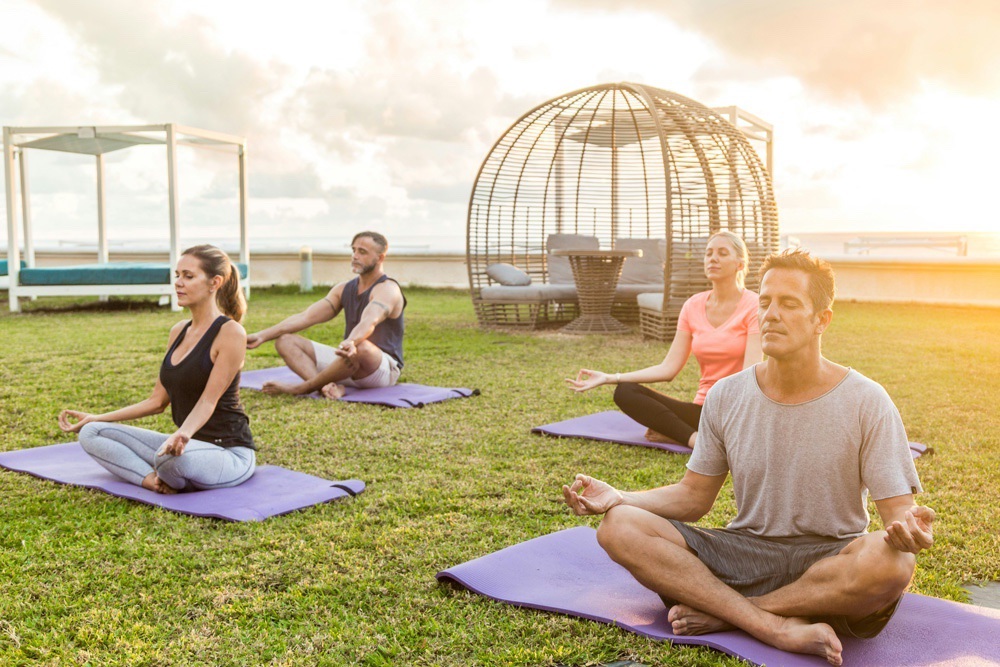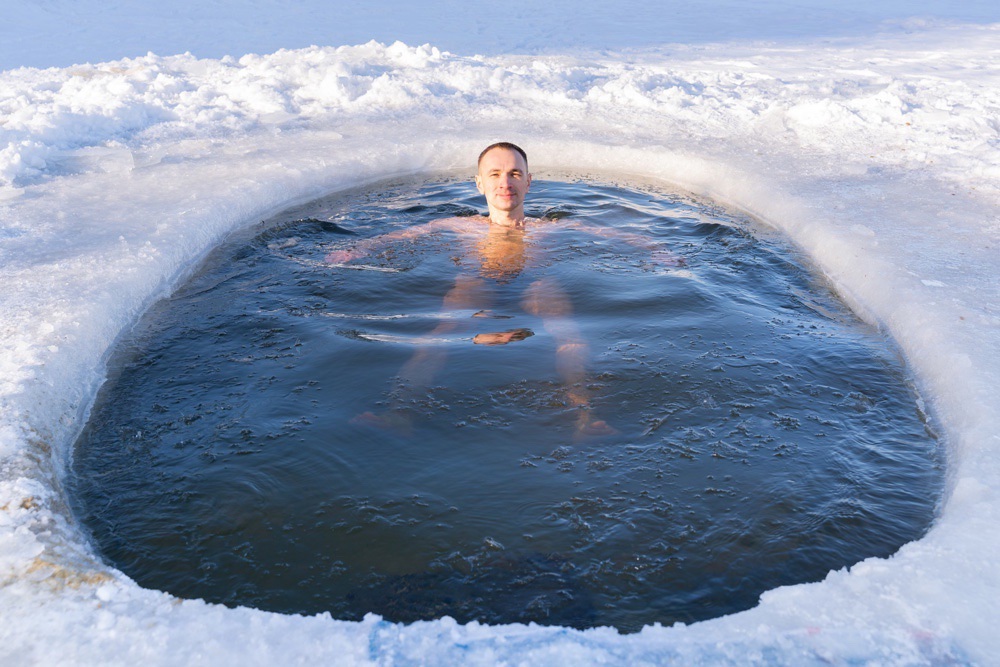Biohacking is currently the rage in the wellness world. What exactly is it, and how can you get started?
‘Biohacking’ might sound like an intimidating term, but there’s no reason to be put off by this wellness trend. It literally just means finding simple, commonsensical, and often accessible ways (hence the term hacks) to optimise our health, performance, and well-being. Some people also believe that these hacks help to extend their lives.
While science in the area is still scarce and more research needs to be done on various biohacks and their benefits, many of these DIY human-augmentation rituals are also generally safe to carry out daily. We highlight four that beginners can try and what some of their purported positive effects are.

Move and stretch consistently
As the saying goes, “motion is lotion”. It might not seem like much, but even walking for 15 minutes a day or doing a simple 10-minute stretch routine can help keep our muscles and joints supple, strong, and flexible. The irony about exercise is that many cite fatigue and exhaustion as reasons to skip it, but exercising actually boosts energy — the more tired you are, the more you should try to move!
Unfortunately, many of us are stuck in environments where movement is difficult, where we sit put for hours on end. Excessive sitting can lead to poor posture, which negatively impacts your shoulders, neck, and lower back. However, just because you are deskbound doesn’t mean you can’t sneak in more movement and exercise into your day. For starters, you can opt for adjustable standing desks, which allow you to stand while working. There are also many stretches that will help you keep good posture and which can be performed without disrupting your workflow. These stretches can also be done while travelling and on a flight.

Meditation
Meditation is often thought of as an extension of yoga, but its touted advantages go beyond the spiritual. Regular meditation can significantly reduce stress and anxiety by promoting relaxation and mindfulness. It enhances emotional health by cultivating a sense of inner peace, often leading to increased overall happiness.
It also has alleged mental and physical benefits, including improved concentration, attention span, memory, and sleep quality.
If you’re looking for a place to start your meditation practice, check out Zen Meditation - The Art of Happiness by Meditation Spa.
For more meditation resources, check out Wellness & Relaxation and Nature & Zen.

Cold plunge
Cold plunging is the immersion of oneself in cold water, a practice that has gained popularity in the past decade thanks to its many celebrity adherents, including Jason Momoa and Chris Hemsworth. Sure, many people are still put off by the idea of willingly subjecting themselves to frigid conditions. But a more practical way to think of cold plunging is to think of it as meditation (see above) in the cold. To stay in the chilly waters, you have to be mindful of your breath and focus on lengthening your exhalations.
This biohack has many touted health benefits that extend to both the body and mind. Cold plunges can stimulate the circulatory system, enhancing blood flow and oxygen delivery to muscles and organs, which can aid in recovery and reduce inflammation. This is also why so many athletes swear by it.
This practice also boosts the immune system by increasing the production of white blood cells and improving the body’s resilience to stress. Cold exposure triggers the release of endorphins, which can elevate mood and alleviate symptoms of depression and anxiety. Additionally, regular cold plunging can help build mental fortitude and enhance mental clarity.
To learn more about cold plunging, check out the “The Incredible Benefits of Cold Plunging” episode in our Here and Now series.

Get natural sunlight, especially first thing in the morning
Seems pretty straightforward, right? Being out in the sun early in the morning is something simple to do — all it requires is just a little discipline — but it has plenty of benefits for the body. Sunlight is a natural source of vitamin D, which is pivotal in maintaining healthy bones and teeth, supporting the immune system, and regulating mood.
Exposure to sunlight helps synchronise the body’s internal clock, improving sleep patterns (resetting our sleep-wake cycle) by regulating the production of melatonin. Sunlight also enhances mood by boosting the production of serotonin, often referred to as the ‘happiness hormone’, which can reduce the risk of depression and anxiety. Lastly, for those who struggle with psoriasis and eczema, sunlight exposure might also help alleviate those skin conditions.
Images: © Unsplash (Emma Simpson, Jose Vazquez), © Pexels (Ricky Esquivel)